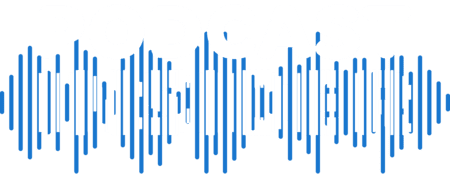Podcast: Play in new window | Download (Duration: 25:40 — 35.3MB) | Embed
Exploring Quirky and Evolving Terminology in the Podcast World
 Podcasting came to be around 20 something years ago and with this time has come changes to the way that people refer to the podcast industry and medium as a whole, effectively creating podcast slang that we’ve all become familiar with. Today we reflect on the creative and dynamic nature of the podcasting industry, continually evolving as the podcasting medium grows and changes.
Podcasting came to be around 20 something years ago and with this time has come changes to the way that people refer to the podcast industry and medium as a whole, effectively creating podcast slang that we’ve all become familiar with. Today we reflect on the creative and dynamic nature of the podcasting industry, continually evolving as the podcasting medium grows and changes.
Today’s Hosts: Mike Dell and MacKenzie Bennett
Here’s some of the words commonly used in podcasting.
The Basics
Podcast
RSS Feed
Podfade
Binge-listening
Audiocast
Episode vs. show
Program vs. show
Storytelling
Audio Drama
Advertising
Programmatic Advertising
Dynamic Ad Insertion
According to ChatGPT, these phrases are popular podcast slang.
Podcast: A combination of “iPod” (Apple’s portable media player) and “broadcast.” The term was coined in 2004 by journalist Ben Hammersley.
RSS Feed: Really Simple Syndication (RSS) is a web feed format that allows users to access updates to online content in a standardized way. Podcasts use RSS feeds to distribute episodes.
Podcaster: A person who creates or hosts a podcast. The term is a natural derivative of “broadcaster.”
Podcasting: The act of creating, producing, and distributing podcasts. The term is derived from “podcast.”
Episode: An individual installment or segment of a podcast series. The term is borrowed from traditional radio and television shows.
Show Notes: Written summaries, links, and additional information related to a podcast episode. These notes often accompany episodes on podcast platforms or the podcast’s website.
Podfade: The phenomenon where a podcast gradually loses its regularity or ceases production altogether. This term is a blend of “podcast” and “fade.”
Audible Blink: A short sound or musical interlude within a podcast episode, often used for transitions or emphasis. This term emphasizes the auditory nature of the brief break.
Podsode: A shorter, bonus episode released between regular episodes. The term is a blend of “podcast” and “episode.”
Binge-Listening: Consuming multiple episodes or an entire podcast series in one sitting or over a short period.
Audio Drama: Podcasts that use fictional storytelling and sound effects to create a dramatic narrative experience. The term emphasizes the dramatic and immersive aspects of these podcasts.
Soundscaping: The art of using sound effects and audio elements to create a rich and immersive sonic environment in a podcast. This term is derived from “soundscape.”
Mic Fright: Nervousness or stage fright experienced by individuals when speaking into a microphone. It’s a play on stage fright, emphasizing the fear of performing in front of a microphone.
Edit Bay: The physical or digital space where podcast editing takes place. It’s a nod to the editing rooms in traditional media production.
True Crime Fatigue: The feeling of exhaustion or burnout from consuming too much true crime content. This term highlights the specific challenges associated with true crime podcasting.
Nichecasting: Creating content that caters to a specific, often narrow, audience or interest group. It’s a combination of “niche” and “broadcasting.”
Glossary of Terms in Podcasting
Focused on audio definitions
https://blog.podcast.co/create/podcast-glossary-terms-phrases-explained
Industry Focused for the creator beyond recording
https://soundsprofitable.com/article/podcast-industry-glossary/
The best place for support with any Blubrry product or service is our ticket system. Tickets give the whole team access vs. direct emails or calls.
Fill out our listener survey at surveys.blubrry.com/podcastinsider.
- Hosting customers can schedule a one-on-one call with Todd or a tech checkup with Mike.
- todd@blubrry.com and mike@blubrry.com





